- Home
- Sharyn McCrumb
Bimbos of the Death Sun
Bimbos of the Death Sun Read online
Bimbos of the Death Sun
Sharyn McCrumb
Copyright
Bimbos of the Death Sun
Copyright © 1988 by Sharyn McCrumb
Cover art to the electronic edition copyright © 2002 by RosettaBooks, LLC
All rights reserved. No part of this book may be used or reproduced in any manner whatsoever without written permission except in the case of brief quotations embodied in critical articles and reviews.
Electronic editions published 2002, 2010 by RosettaBooks LLC, New York.
ISBN Mobipocket edition: 9780795309663
Contents
Chapter 1
Chapter 2
Chapter 3
Chapter 4
Chapter 5
Chapter 6
Chapter 7
Chapter 8
Chapter 9
Chapter 10
Chapter 11
Chapter 12
Chapter 13
Chapter 14
Chapter 15
ONE
The visiting Scottish folksinger peered out of the elevator into the hotel lobby. When he pushed the button marked “G,” he naturally assumed that he would arrive at the ground floor of the building. Now he wasn’t so sure. Things were different in America, but he hadn’t realized they were this different. Perhaps “G” stood for Ganymede, or some other intergalactic place. Who were those people?
A pale blonde in blue body paint wearing a green satin tunic stepped on to the elevator, eyeing his jeans and sweatshirt with faint disapproval. “Going up?” she said in her flat American accent. She looked about twenty, he thought. The elevator was moving before he realized that he’d forgotten to get out.
“You here for the con?” she asked, noticing his guitar case.
“No. I’m a tourist.” He liked that better than saying he was on tour; it prevented leading questions that ended in disappointment when the American discovered: 1) that they had never heard of him, and 2) that he didn’t know Rod Stewart. “What are you here for?”
She grinned. “Oh, you mean you don’t know? It’s Rubicon—a science fiction convention. We’re practically taking over the hotel. There’ll be hundreds of us.”
“Oh, right. Like Trekkies.” He nodded. “We have some of your lot back home.”
“Where’s home?” she asked, fiddling with the key ring on her yellow sash.
“Scotland.” At least she hadn’t tried to guess. He was getting tired of being mistaken for an Australian.
As the elevator doors rumbled open on the fifth floor, the departing blue person glanced again at his jeans. “Scotland, huh?” she mused. “Aren’t you supposed to be wearing some kind of funny outfit?”
“Is Diefenbaker here yet?” asked Bernard Buchanan breathlessly. He always said things a little breathlessly, on account of the bulk he was carrying around, and he was always clutching a sheaf of computer printouts, which he would try to read to the unwary.
Miles Perry, whose years of con experience had made him chief among the wary, began to edge away from the neo-fan. “I haven’t seen him,” he hedged.
“I had a letter from him on Yellow Pigs Day, and he said he’d be here,” Bernard persisted. “He’s supposed to be running one of the wargames, and I wanted him to look at my new parody.”
Miles swallowed his exasperation. It was, after all, the first hour of the convention. If he started shouting now, his blood pressure would exceed his I.Q. in no time, and there were still two more days of wide-eyed novices to endure. Diefenbaker would encourage these eager puppies; he brought it on himself. Miles had a good mind to post a notice in the hotel lobby informing everyone of Diefenbaker’s room number. Maybe a few dozen hours of collective neo-fans, all reading him fanzine press at once, would cure him of these paternal instincts. Really, Diefenbaker would write to anybody. Just let someone in Nowhere-in-Particular, New Jersey, write in a comment to Diefenbaker’s fan magazine, and Dief would fire back a friendly five-page letter, making the poor crottled greep feel liked. More comments would follow, requiring more five-page letters. Miles didn’t like to think what Dief’s postage budget would run. And this is what it came to: post-adolescent monomaniacs waiting to waylay him at cons to discuss Lithuanian politics, or silicon-based life forms, or whatever their passion was. If he weren’t careful, he’d get so tied up with these upstarts that he wouldn’t have time to socialize with the authors and the fen-elite. Miles would have to protect Dief from such pitfalls, for his own good.
“I don’t think he’s due in until tomorrow,” he informed the anxious young man. “Of course, you might look around the exhibition rooms and see if you can spot him.”
“But I don’t know what he looks like!” wailed Buchanan, but Miles Perry was already disappearing into the crowd.
“Miles, I must speak to you!” In a green turtleneck sweater and medallion, Richard Faber looked like a champagne bottle; he could be equally explosive as well.
“Why, hello, Richard. How nice to see you.” Richard and Miles were fellow players in an other-world Diplomacy game called “Far Brandonia,” in which players became heads of state of mythical countries, and engaged in war or diplomacy, all meticulously recorded in a mimeographed fan magazine called Brandywind.
At the moment, Miles and Richard were in detente, which called for scrupulous politeness and as little communication as possible. “Have you signed any treaties with C.D. Novibazaar?” Richard demanded.
“Why do you ask?” countered Miles pleasantly.
“Because he has an army sitting on my southern border, that’s why! I thought he was going to lend it to me, but now I’m not so sure. Is Clanton here? What about Diefenbaker?”
Miles noticed a crowd around the registration table. Wendy would be needing some help. “Perhaps we can get together later when the chaos subsides, Faber.”
“Novibazaar still has the Seal of Corstorphine, hasn’t he? Have we decided yet whether that gives him control of the railroads through Gondal?”
Miles closed his eyes for dramatic effect. That was just the trouble with Faber, in the game and out of it. No patience and no tact. “Richard, I will get back to you when—oh, good lord, it’s him!” He began to run toward the registration table, having just glimpsed a white cowboy hat bobbing about five feet above the floor.
Miles Perry parted the crowd with less than his usual smoothness, and bent to shake hands with the figure beneath the bobbing Stetson. “Mr. Dungannon, what an honor to have you here!”
“The pleasure is entirely yours!” snapped Appin Dungannon, sounding for all the world like a peevish elf. His narrowed piggy eyes darted from one autograph seeker to another, and finally cantilevered upward to glare at Perry’s plaster smile. “Are you going to get me out of here?”
“I’d be happy to escort you to your room, and we can discuss the schedule.” Miles turned to the pack of fans, waving Appin Dungannon paperbacks. “You can catch up with him later, people,” he told them. “Let him get settled in first.” Picking up Dungannon’s leather bag and computer case, Miles steered the guest author toward the elevator, talking soothingly of complimentary liquor and bulk orders of his books. Perhaps by the time they reached his room, Dungannon would have calmed down sufficiently for Miles to ask him about judging the writing contest.
Behind them, an unfortunately loud voice exclaimed, “He writes Tratyn Runewind?” The elevator doors sealed out a chorus of “Shhhhs” from the surrounding fen. That sentiment, seldom so untactfully voiced, was one of the great common experiences in fandom: the shock of discovering that the chronicles of the golden Viking warrior Tratyn Runewind were written by a malevolent elf with a drinking problem. Part of fen lore, to be imparted to promising newcomers
, was the lecture on How to Deal with Appin Dungannon. He was susceptible to flattery; willing to autograph books (even second-hand copies—signature only); but he would not discuss future Runewind books, and if questioned about details on the old ones, he was likely to know less about the book than the fan did. He had probably not read it as often. The one cardinal rule of Dungannontry was: never, never approach the author while wearing a Tratyn Runewind costume. He had once hurled an entire stack of hardbacks and a water carafe at a Runewind imposter. Still, he was internationally famous, and his appearance at a con was a guarantee of good attendance, so con organizers suffered him gladly; besides, his atrocities made good anecdotes to recount at later cons.
“And we were hoping you’d judge the costume contest later this evening,” Miles was saying to his scowling charge. “Just a brief little event.”
Dungannon grunted. “Especially if you’re male.”
Wisely choosing to ignore this, Miles continued, “And for dinner tonight, I thought you might like to join me and Walter Diefenbaker. You remember Diefenbaker, perhaps, from Mysticon?”
Dungannon made a sound that might have been assent or the sound of a Kyle-dragon swallowing a village. “Anyway, we thought we’d take you to dinner, and then you can sign autographs or whatever until costume time. There’ll be filksinging in Room 211.”
“I am indebted to you for the warning,” said the author with a little bow.
“Oh, one other thing. There is another guest author coming to the convention. Perhaps we ought to ask him along to dinner as well.”
“Who?”
“He’s a local guy, a professor at the university. Just had his first SF novel come out in paperback. Would you like to meet him?”
Dungannon produced a fanged smile. “Let him wait in line with the other groupies,” he said, giggling.
Miles Perry sighed, sensing a nasty Dungannon legend in the making.
TWO
Dr. James Owens Mega looked again at the empty registration desk, and then at the inhabitants of the lobby, trying to decide whom to ask for help: the green pirate, the robot, or the giant insect. None of the above. Further inspection revealed an even more interesting individual: a portly, pleasant-looking fellow who reminded him of Winnie-the-Pooh. The interesting thing was that the fellow wasn’t costumed as Winnie-the-Pooh; he was wearing rimless glasses and an ordinary tweed suit, but he looked like a Milne character anyway. He must have been born middle-aged, Mega thought. Probably in his mid-twenties now, but he’ll still look that way at fifty. Not entirely a bad thing, though. Mega, an engineering professor, had the opposite problem: he was thirty, but librarians still mistook him for an undergraduate. At least I don’t look out of place here, he thought. He looked again at the giant insect. But, then, who would?
“Winnie” had noticed his bewilderment and ambled over to chat. “Hello,” he said, offering what Mega couldn’t help thinking of as a pink paw. “Our registrar has gone to the ladies’ room. Perhaps I can sign you up. Are you preregistered?”
“I’m not sure,” stammered Mega. “That is, I’m expected.”
The bear was all smiling patience. “You sent in your fee?”
“No, I’m James Mega.” He waited for a beam of recognition, but none was forthcoming. Mega managed a modest smile. “I’m the guest author.”
The smile turned to stricken consternation. “Dungannon canceled?”
Mega winced. “Sorry. I should have said I’m one of the guest authors. I believe Appin Dungannon is still scheduled to appear.” He had a sudden premonition of what the weekend was going to be like.
“I’m afraid I’ve been a bit of an oaf,” smiled the bear. “My name is Diefenbaker, and I’m sure I’ll like you better than anybody likes Dungannon. Let me just get you a name tag. James Mega, did you say?”
“Well, I have sort of a pen name,” Mega murmured diffidently. “It’s my initials, really. You see, I’m an engineering professor at Tech, and I got this idea for a problem involving the effects of sunspot activity on computers …” He felt as if he were taking his orals again, and that he’d never stop worrying the explanation. A few stray conventioners had assembled within earshot and were looking curiously at him, as if trying to decide if he were someone or not. Mega plunged on into the explanation. “I couldn’t do the thing as a research project, because the conditions were purely abstract, so I decided to write it up as fiction, and a paperback house liked it. … I just sent it in for fun … and—”
“I know you!” cried a ferrety-looking youth in a green turtleneck. “You wrote Bimbos of the Death Sun!”
Dr. Omega hung his head. “Yes,” he sighed.
There it was: his pride, his fictionalized exercise in pure reason concerning the effects of sunspot activity in relation to polymer acrylic on capacitive interaction among high-frequency microcomponents in thick film circuits. He had known that when Alien Books bought it, there would have to be some commercialization, but he hadn’t bargained on being heralded as the author of something called Bimbos of the Death Sun. And the cover art! A female bodybuilder in a fur bikini sprawled in front of a computer terminal, clutching the leg of a white-coated man holding a clipboard.
Dr. Omega lived in fear that some undergraduate student in engineering would figure out who he was and bruit the news around campus. As it was, he checked all the book stores in town once a week to make sure that no copies had been slipped onto the local author rack. His pen name, which he’d been so pleased with at the time, now seemed entirely too obvious.
“So you’re Jay Omega?” smiled Diefenbaker, shaking his hand again.
“Er—yes. Short for James Owens Mega.”
“It has a good sound to it. Does it signify anything? I seem to remember something about omega.”
“Oh, yes? Have you studied engineering?”
Diefenbaker waved his hand. “I pick things up here and there.”
“It was a good guess. Jay Omega is an electrical engineering term for frequency times the square root of negative one. It’s the imaginary part of an inductance, you see, and since I was doing a work of fiction …”
“Oh, very clever!” beamed Diefenbaker. “I should love to read it. Did we order copies for the Con?”
Jay Omega reddened. “Well, actually … my publisher’s publicity department doesn’t pay much attention to me, and I couldn’t persuade them to send any, but I got the local book store to order some copies for me from the warehouse.” He glanced down at the large, bulging canvas suitcase propped up against the registration table.
“I see,” said Diefenbaker faintly. He smiled again. “Well, I shall tell everyone to come and get an autographed copy from you. In fact, I’ll buy the first one myself after we get you signed in.”
“Thanks very much. Do you think you could tell me what I’m supposed to be doing?”
“This is your first con, isn’t it?”
“Yes. It wasn’t my idea, really, but a friend of mine … she teaches science fiction in the English department …” And I’ll get her for this if it’s the last thing I ever do, he finished silently. He could picture Marion perched on the arm of his sofa, saying, “Your job is only half done when you finish the book. Nobody will read you if they’ve never heard of you. So, publicize!” She found out about Rubicon from one of the sophomores in her science fiction class, and before he knew it, “Jay Omega” was a featured guest—paying his own way, of course.
“Why don’t I show you around a bit, and then we can see where they’re going to put you for the autographing.”
Jay Omega looked again at his tweed-clad companion. “Why aren’t you in costume?”
Diefenbaker looked surprised. “But I’m a wargamer!” Seeing that this reply had not proved enlightening, he explained, “The world of fandom is divided into several subgroups, mainly into hard science fiction—people who would read your book, for example—and fantasy folk, who are into Tolkien, Dungeons & Dragons, and—”
“Appin Dungannon?�
��
“Exactly. They’re the ones in cloaks and broadswords. The rest of us settle for small tokens of resistance.” He pointed to a button on his lapel that read, “Reality is a crutch for those who can’t handle science fiction.” “Do you play wargames, by any chance?”
“Ah … on the computer?”
“No. Board games. Strategy between players. Diplomacy. Kingmaker. War in the Pacific. No, I see you don’t. How about SF? Who do you read?”
Omega thought hard. “I read something I rather liked once. About an alien spaceman who was stranded on the moon and was trying to get to what would have been prehistoric earth. Can’t remember who wrote it. What was it called?”

 Elizabeth MacPherson 07 - MacPherson’s Lament
Elizabeth MacPherson 07 - MacPherson’s Lament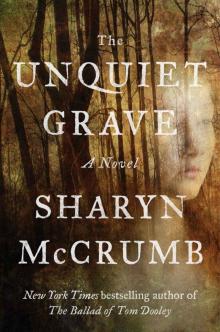 The Unquiet Grave: A Novel
The Unquiet Grave: A Novel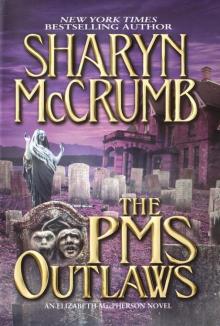 The PMS Outlaws: An Elizabeth MacPherson Novel
The PMS Outlaws: An Elizabeth MacPherson Novel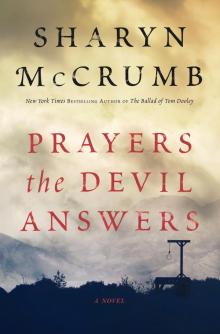 Prayers the Devil Answers
Prayers the Devil Answers Paying the Piper
Paying the Piper The Ballad of Tom Dooley: A Ballad Novel
The Ballad of Tom Dooley: A Ballad Novel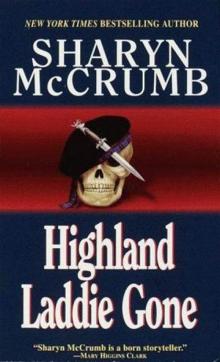 Highland Laddie Gone
Highland Laddie Gone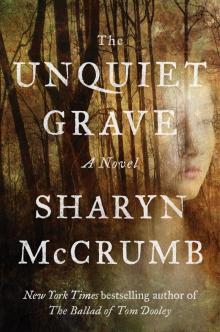 The Unquiet Grave
The Unquiet Grave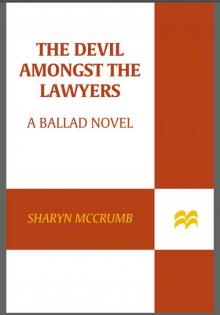 The Devil Amongst the Lawyers
The Devil Amongst the Lawyers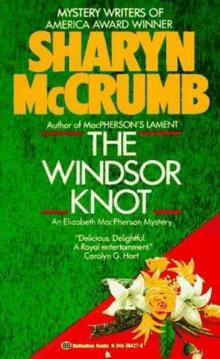 The Windsor Knot
The Windsor Knot The Hangman's Beautiful Daughter
The Hangman's Beautiful Daughter MacPherson's Lament
MacPherson's Lament The Ballad of Tom Dooley
The Ballad of Tom Dooley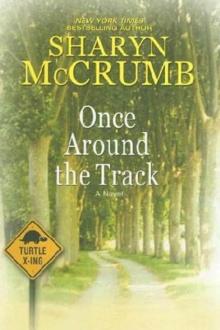 Once Around the Track
Once Around the Track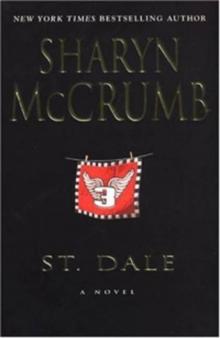 St. Dale
St. Dale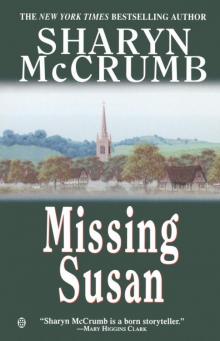 Elizabeth MacPherson 06 - Missing Susan
Elizabeth MacPherson 06 - Missing Susan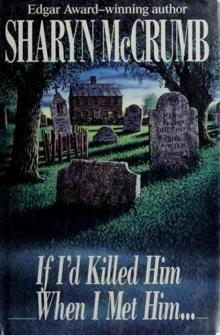 If I'd Killed Him When I Met Him…
If I'd Killed Him When I Met Him…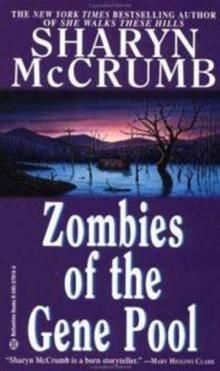 Zombies of the Gene Pool
Zombies of the Gene Pool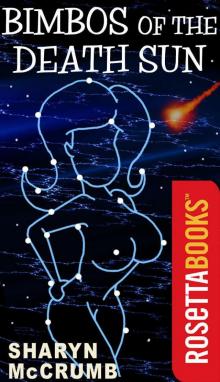 Bimbos of the Death Sun
Bimbos of the Death Sun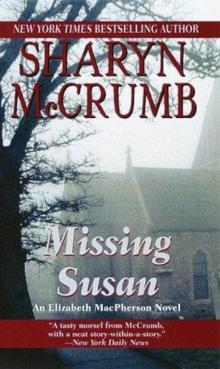 Missing Susan
Missing Susan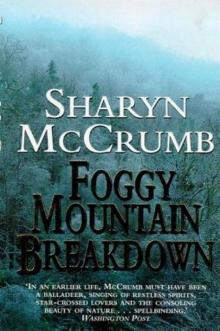 Foggy Mountain Breakdown and Other Stories
Foggy Mountain Breakdown and Other Stories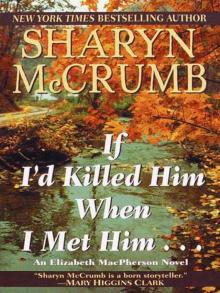 If I'd Killed Him When I Met Him
If I'd Killed Him When I Met Him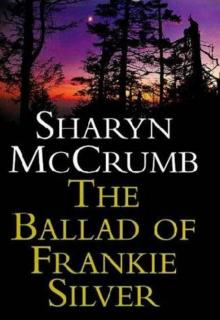 The Ballad of Frankie Silver
The Ballad of Frankie Silver Lovely In Her Bones
Lovely In Her Bones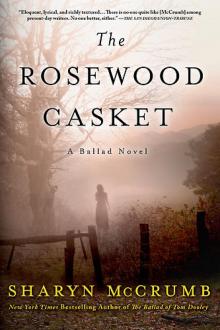 The Rosewood Casket
The Rosewood Casket King's Mountain
King's Mountain